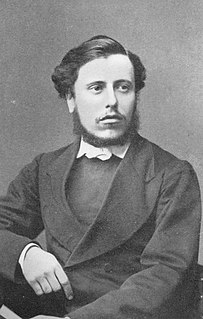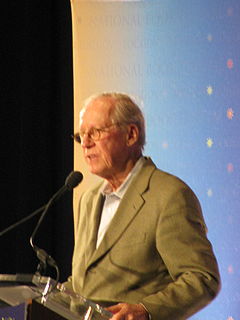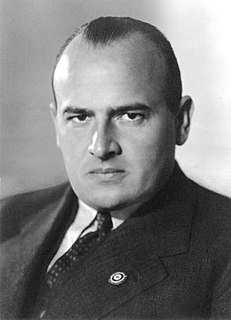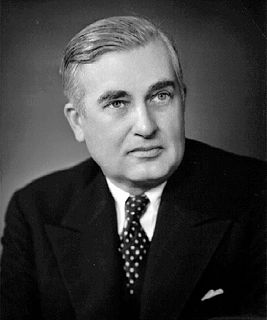A Quote by William Robertson Smith
Religion did not exist for the saving of souls but for the preservation and welfare of society, and in all that was necessary to this end every man had to take his part, or break with the domestic and political community to which he belonged.
Related Quotes
Thirdly, the supreme power cannot take from any man any part of his property without his own consent: for the preservation of property being the end of government, and that for which men enter into society, it necessarily supposes and requires, that the people should have property, without which they must be supposed to lose that, by entering into society, which was the end for which they entered into it; too gross an absurdity for any man to own.
Before any man can be considered as a member of Civil Society, he must be considered as a subject of the Governour of the Universe: And if a member of Civil Society, do it with a saving of his allegiance to the Universal Sovereign. We maintain therefore that in matters of Religion, no man's right is abridged by the institution of Civil Society and that Religion is wholly exempt from its cognizance.
Every man has his price. This is not true. But for every man there exists a bait which he cannot resist swallowing. To win over certain people to something, it is only necessary to give it a gloss of love of humanity, nobility, gentleness, self-sacrifice - and there is nothing you cannot get them to swallow. To their souls, these are the icing, the tidbit; other kinds of souls have others.
Great part of that order which reigns among mankind is not the effect of government. It has its origin in the principles of society and the natural constitution of man. It existed prior to government, and would exist if the formality of government was abolished. The mutual dependence and reciprocal interest which man has upon man, and all the parts of civilised community upon each other, create that great chain of connection which holds it together.
John Wesley taught that the gospel of Christ involved more than saving souls. It should have an impact on all of society, and his followers worked to accomplish just that. They were dispensing grace to the broader world, and in the process their spirit helped change a nation, saving it from the revolutionary chaos that had spread across Europe.
Liberty is the first condition of growth. Your ancestors gave every liberty to the soul, and religion grew. They put the body under every bondage, and society did not grow. The opposite is the case in the West - every liberty to society, none to religion. Now are falling off the shackles from the feet of Eastern society as from those of Western religion.
Freedom is necessary for two reasons. It's necessary for the individual, because the individual, no matter how good the society is, every individual has hopes, fears, ambitions, creative urges, that transcend the purposes of his society. Therefore we have a long history of freedom, where people try to extricate themselves from tyranny for the sake of art, for the sake of science, for the sake of religion, for the sake of the conscience of the individual - this freedom is necessary for the individual.
Every individual is continually exerting himself to find out the most advantageous employment for whatever capital he can command. It is his own advantage, indeed, and not that of the society which he has in view. But the study of his own advantage naturally, or rather necessarily, leads him to prefer that employment which is most advantageous to society... He intends only his own gain, and he is in this, as in many other cases, led by an invisible hand to promote an end which was not part of his intention
I think theoretically if a man is young and healthy society should not give him a basic income. He should not be given dole. He should not be eligible for welfare. If he can work and if there is work available, he should take his choice. If he wants to be a hermit or beggar, that's fine. If he wants to move with the sun and live off the land, that's fine. If he is in a society which has work for him I don't think he should theoretically be eligible for welfare.
Every man, in proportion to his virtue, considers himself, with respect to the great community of mankind, as the steward and guardian of their interests in the property which he chances to possess. Every man, in proportion to his wisdom, sees the manner in which it is his duty to employ the resources which the consent of mankind has intrusted to his discretion.





































